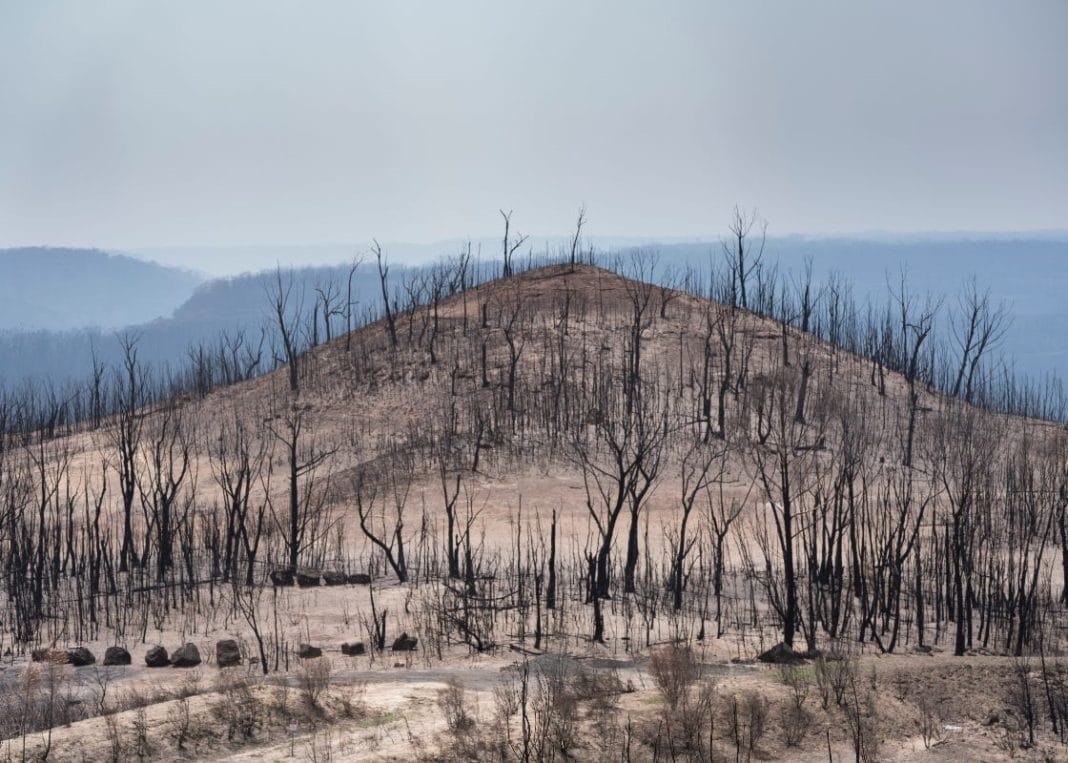Indigenous Australians suffered worse impacts from the Black Summer bushfires due to inappropriate planning and unsuitable interventions by authorities during the crisis, researchers at The Australian National University (ANU) argue.
The researchers have published a report examining the first-hand experiences of Indigenous Australians during the 2019-2020 bushfires, and say the findings are also reflected in the current northern New South Wales floods. Indigenous Australians experienced racism and unfair treatment in the face of the bushfire catastrophe, in addition to loss of home, land and lives, the ANU researchers found.
The new paper from the ANU Centre for Aboriginal Economic Policy Research argues that “at the height of the [bushfire] crisis, stories emerged of culturally unsafe and unwelcoming relief and recovery services.”
The paper highlights the requirement of Aboriginal communities and organisations to step up and evacuate community members, provide immediate support, and take steps to protect their cultural and heritage values.
“So many Aboriginal people were affected by the bushfires. They experienced extreme trauma both from the fire itself and the response from non-Indigenous organisations and government agencies,” lead author and ANU PhD candidate Bhiamie Williamson said.
“There is a huge gap in policy when it comes to supporting Indigenous peoples in disasters, with very little regard as to how disasters impact Indigenous peoples in ways that are different to others.”
The paper points explicitly to the lack of inclusion of Aboriginal peoples when it comes to disaster planning.
“In disaster planning, preparation is everything, and there are no emergency management plans that discuss the unique needs of Aboriginal people,” Mr Williamson said.
“The lack of planning involving First Nations peoples meant that the response during the Black Summer bushfires was inadequate, ineffective and inappropriate.”
The paper further highlights the direct link between the lack of appropriate planning, and the impacts of this on Aboriginal peoples, communities and organisations.
According to the researchers, First Nations peoples experienced racism during the disaster in the form of unwelcome treatment in evacuation centres, as well as a lack of culturally suitable support.
“It is clear that Aboriginal people, communities and First Nations were made to feel unwelcome, and that agencies were, in many instances, reluctant to provide relief,” Mr Williamson said.
“This lack of support and disregard stems from inherit bias and structural racism.”
Although the paper looks explicitly at bushfires, the relevance is much broader.
“An aim of the paper was to empower Aboriginal community organisations to advocate for themselves, and also to encourage government organisations to include Aboriginal people in their processes, planning, and interventions,” Mr Williamson said.
“We are seeing scary similarities in what is happening with the flooding in northern NSW. Large numbers of Aboriginal people are being affected, with many communities being cut off, and having to fend for themselves yet again.
“It is essential to recognise that while all people are impacted by disasters, some are impacted in ways that are different, with markedly different consequences.”
The research was funded in partnership with the Australian Indigenous Governance Institute as part of The Indigenous Governance of Development: Self-Determination and Success Project. Read the full discussion paper online.



